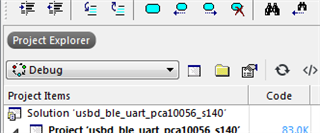Hi everyone!
I have recently implemented USB CDC on a custom NRF52840 device with SDK 15.0 and got it to work with Windows, Mac, and Linux OS. However, when I try it on an Android device I can't seem to get it to connect and send/receive any data. I can see the device by using any USB serial terminal application available on play store, such as, Serial terminal or USB Serial terminal. The device appears in the list and can see the correct PID/VID, but as I establish a connection with the device I receive an error that the controlTransfer failed, can't seem to find anything about this error somewhere when searching on android forums.
My question is whether I have to do anything in the software to enable the device to communicate with an Android device? It is working without any problems on all other operative systems that I have tried on but not on Android devices. Have also tried different adapters and three different Android devices and all show the same error.
I really appreciate any help I could get
Best regards
Hadi



